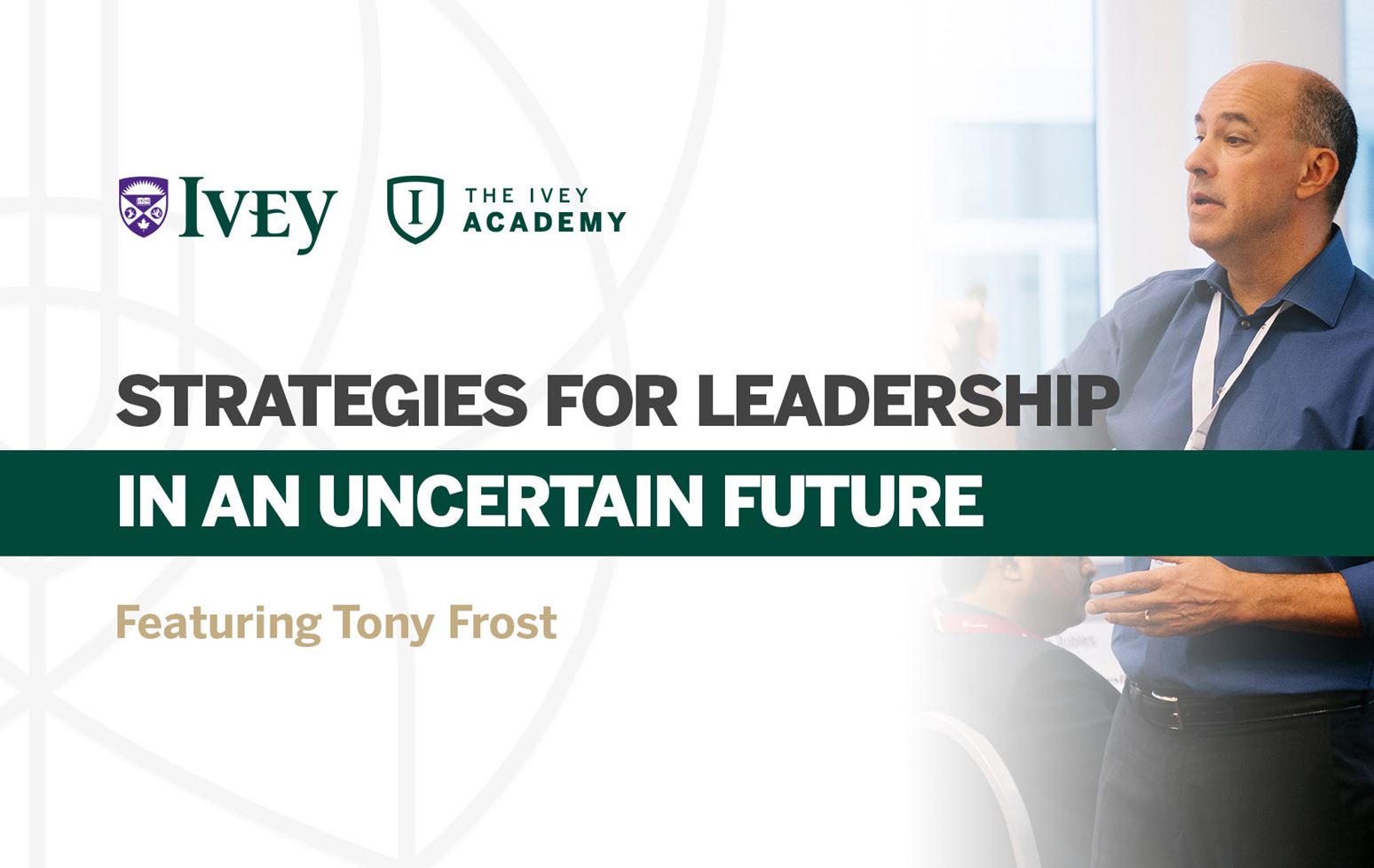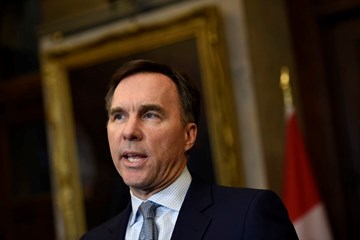When it comes to discussing the outlook for business and the economy after the COVID-19 crisis, Tony Frost is reluctant to make predictions. But one thing he will say is it won’t be an easy road back.
“My mantra right now is I feel we’re taking an elevator down and we’re going to take an escalator back,” he said. “And I think this is one of those things where the escalator is going to take three years before we get back to where we were before in the economy.”
Frost, an associate professor of strategy and international business, led a webinar called Strategies for Leadership in an Uncertain Future, which gave a snapshot of the current crisis and its impact on business. Hosted by The Ivey Academy, it focused on ways companies can be more adaptable and resilient when facing uncertainty. Here are some key takeaways:
Keep your eyes above the horizon
Business leaders should always keep an eye on the external world and try to understand how big forces might shape the industries and firms where they operate. Digital transformation and artificial intelligence are examples of recent forces impacting business. While the COVID-19 crisis is a force of unprecedented magnitude, Frost said business leaders and companies still need to think about how they can position themselves and respond.
“You really need to be thinking about periodizing your strategy. There is the now moment and then there is the future moment. The future is uncertain, but what you do right now is, of course, germane,” he said. “Companies need to be doing a lot of alternative scenario modelling for how the interplay of virus, containment strategies, and economies are going to work out.”
Determine your organization’s adaptability
Businesses are being affected by the crisis in different ways, depending on whether the products or services they offer are in demand during these times. For instance, with the move to online, the demand for video-conferencing technology has allowed companies such as Zoom to thrive, while travel bans have pretty much grounded cruise lines. Even within industries the situation can be quite different.
Frost recommends companies assess both their financial and business model resilience. Financial resilience involves strong balance sheets, access to credit, and corporate parent shelter. Business model resilience includes having solid business fundamentals, staple or non-discretionary purchases, low to moderate cash outlays, and – most importantly – the ability to offer digital or digitizable purchases.
“Who’s going to make it out of this? I think it depends on the extent to which organizations can think about digital or digitizable delivery and fulfillment,” he said. “The next phase becomes one of adaptation. To what extent can you reinvent yourself?”
Capitalize on strategic opportunities
If there is a bright light in this crisis, it’s that companies can focus on setting themselves up for future success. Perhaps it’s entering into adjacent businesses, buying assets that were overvalued pre-crisis, or accelerating plans that had been put on the back burner.
“Think about what your offence looks like. How can you use this crisis as a source of opportunity?,” he said. “Now might be a fantastic time to get in and make the moves you’ve always wanted to make.”
Be prepared to lead counter-cyclically
Recovery for companies depends a lot on how the virus unfolds. If it continues to circulate the globe in waves, as expected, companies may be allowed to resume normal operations temporarily and then again be forced to shut down. Frost encourages companies to make sure they can handle a rapid increase in demand and to work on alternative plans for the shutdown period.
“This on/off structure is going to be tough for companies and this is where leadership and the ability to lead change and inspire people to do extraordinary things is going to be a big part of the success factor,” he said. “Can we create more agile, flexible, adaptive, responsive structures? That is the test.”
And perhaps his most important advice for businesses is to bear in mind that this crisis, like every other crisis in history, will one day pass.
“This isn’t the first pandemic we’ve had. We’ve had lots of big shocks to the system before. This one is huge, but we’ll get over it,” he said. “Don’t let the current crisis period be your only focus. You can’t stop thinking about the future.”



